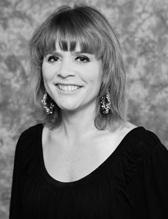 In their final semesters at the University of Maryland, the students of the Philip Merrill Presidential Scholars Program, run by the Office of Undergraduate Studies, have the unique opportunity to look back on their journey to the graduation stage. At a luncheon on Friday, November 18th, the scholars, including START fellow Erika Swanson, honored their grade school mentors as well as their University of Maryland faculty and staff mentors, connecting the beginnings and endings of their academic careers.
In their final semesters at the University of Maryland, the students of the Philip Merrill Presidential Scholars Program, run by the Office of Undergraduate Studies, have the unique opportunity to look back on their journey to the graduation stage. At a luncheon on Friday, November 18th, the scholars, including START fellow Erika Swanson, honored their grade school mentors as well as their University of Maryland faculty and staff mentors, connecting the beginnings and endings of their academic careers.
Swanson, a criminology and criminal justice student who completed the global terrorism minor as well as a minor in Middle East studies, invited START Education Director Dr. Kate Izsak and Mr. Brian Duschenchuk, who taught her as a second grader in Tarrytown, New York, to join her as mentors at the luncheon.
“Both of my mentors are great at pushing me to do better,” said Swanson. “They also both achieved those goals through somewhat unconventional means—Mr. Duschenchuk forced us to expand our vocabularies and communication skills by banning certain words (such as “like” and “things”) and Dr. Izsak introduced us to the Design Thinking Process, which utilizes empathy and prototyping, among other steps, to problem-solve challenges effectively, even when it means really stepping outside of the box.”
Swanson’s contributions to START are numerous; in addition to participating in the global terrorism minor, she served as a Countering Violent Extremist Fellow, helping to create the “No Hate USA” social media campaign in spring 2015, an effort to combat the social media recruiting techniques of extremist terrorist organizations. Erika also traveled to Singapore with nine other students to visit the International Centre for Political Violence and Terrorism research (ICPVTR) at Nanyang Technological University (NTU). It was through this involvement with START and her role as a teaching assistant to Dr. Izsak that Swanson developed her closest mentorship.
“Dr. Izsak is more than just a professor because she is always so willing to answer any questions that I or anyone else may have. She’s also someone who I know will treat me with respect, encourage me and always push me to higher heights. Most of my professors are happy to help me with issues related to their class, but Dr. Izsak goes a step beyond for her students, encouraging personal and professional development. And she always does it with a huge smile on her face, which I truly appreciate.”
Swanson’s passion for countering violent extremism spurred her interest in the homeland security field, largely because of the insight and advice she obtained from Dr. Izsak.
“She really believes in the idea that you can be yourself and still be very successful,” wrote Swanson. “I look forward to seeing Dr. Izsak’s hair color change every six weeks or so and it’s always a reminder that you can be respected in your field and still be true to yourself. She has always encouraged us to think outside the box, especially in using the Design Thinking Process to solve problems and address challenges in new and exciting ways.”
The Merrill Presidential Scholars Program awards top students from different schools and majors across the University of Maryland as well as mentors at the grade school and university level who helped them achieve success along the way. The program hosts a luncheon and workshop for the students and their mentors to foster alliances between University of Maryland and the elementary and secondary education schools that produced many of the University’s most dedicated collegiate scholars. Scholarships in the name of the K-12 teacher are then awarded to a first year University of Maryland student from that teacher’s school or district.
“My advice to students is to not be shy! Make an effort to talk your teachers and professors outside of the classroom,” said Swanson. “It is important for students to show their instructors that they are interested in building a relationship. I have found that professors are generally very approachable and more than willing to help students succeed.”
